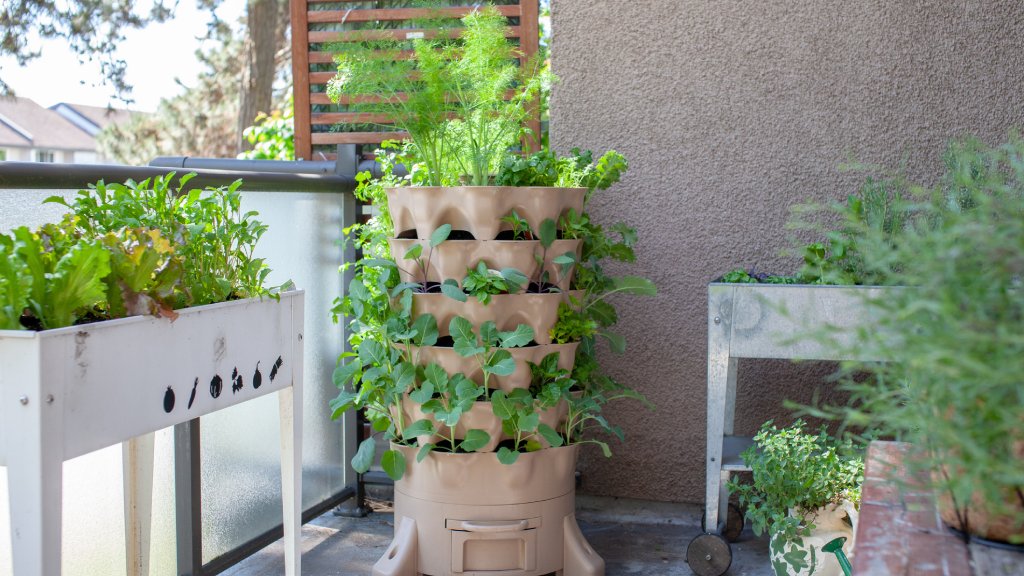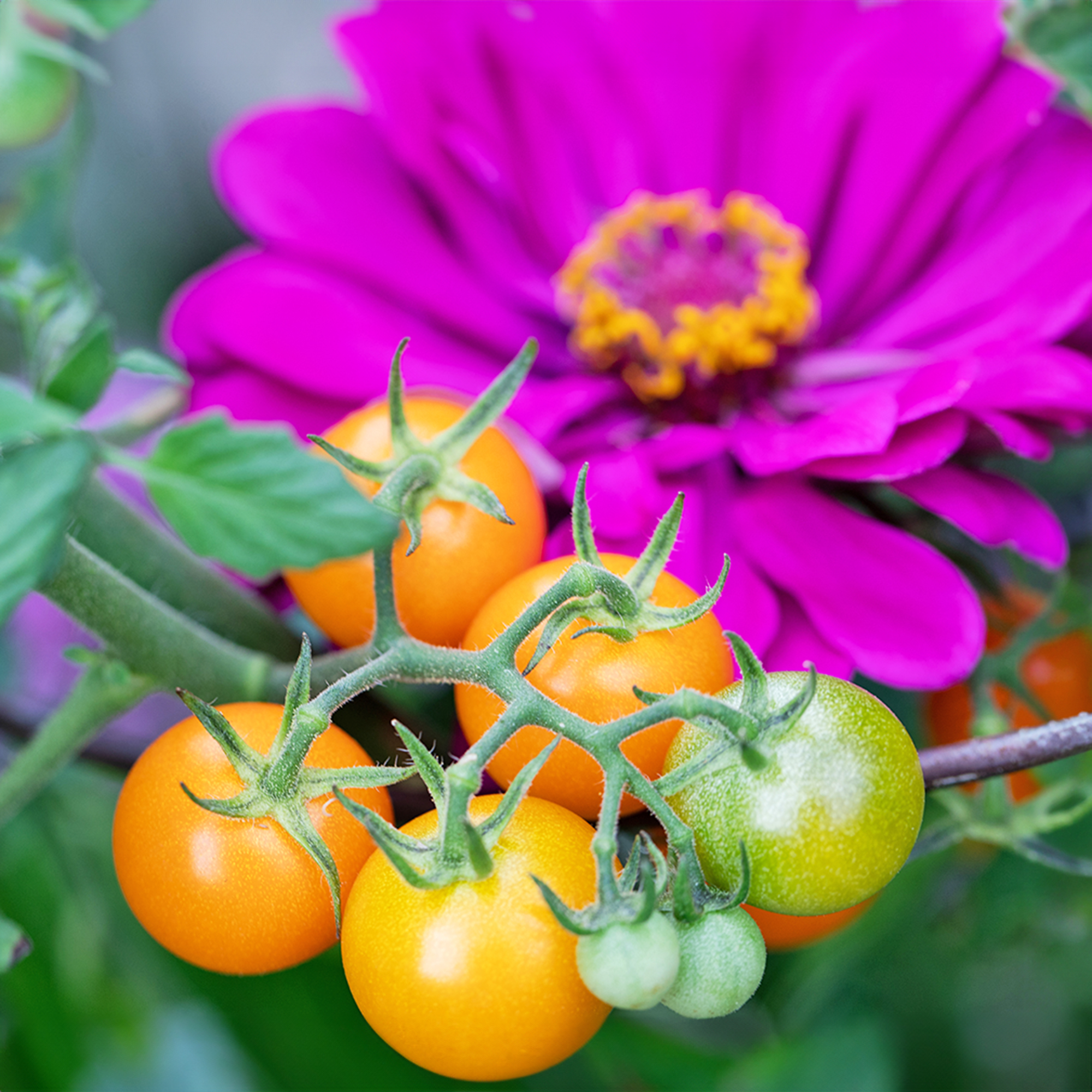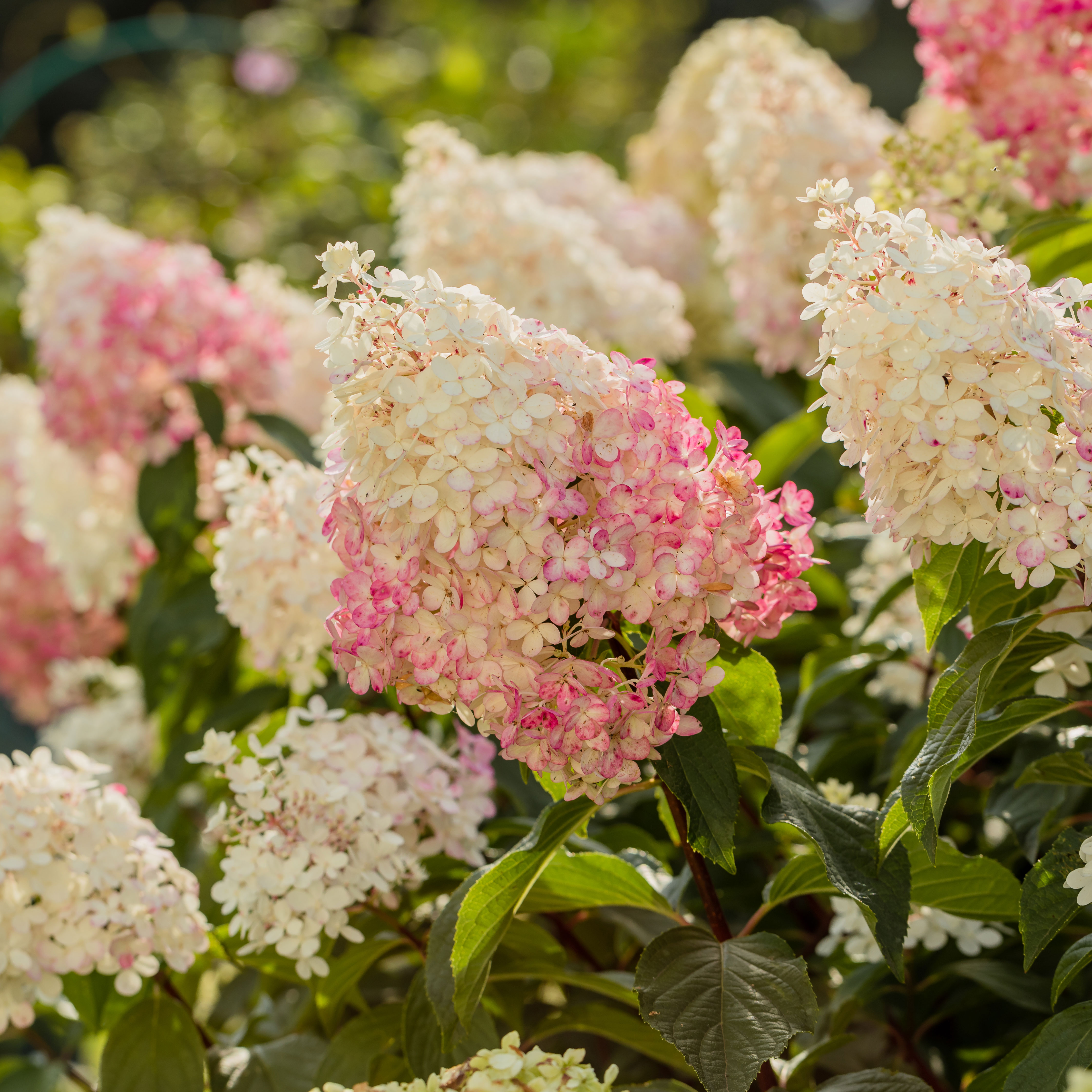Clever Vertical Vegetable Garden Ideas For Small Spaces – 7 Ways To Save Space
Short on garden space? Learn some vegetable garden ideas for small spaces that are fun and easy.


Growing a vertical garden is not a new concept, but is increasingly embraced by gardeners with small spaces. Utilizing vertical space allows you to grow more with less. Use these small veggie garden ideas to make the most of your tight space.
Space-Saving Vertical Vegetable Garden DIY Ideas
Who can benefit from vertical vegetable gardening ideas? Anyone with limited space and a desire to grow their own veggies.
1. Grow Vegetables Upside Down
A really unique idea for a vertical balcony vegetable garden or any type of small space is to grow veggies upside down. The idea is that the plants grow through drainage holes in a hanging pot. You can also use a bucket with holes drilled in the bottom or look for a kit specifically for a hanging vegetable garden.
Plants well suited to this arrangement include tomatoes, cucumbers, beans, and peppers. To make even more of the space, grow lettuce or herbs upright in the top of the container.
2. Plant Onions in Bottles
Sneak some onions into your kitchen garden by growing them vertically in an old plastic bottle. You’ll need at least a two-liter bottle, but five-liter water jugs also work. Cut holes in the side and fill the container with soil. Regrow onions using the bases of old bulbs or sow seeds in the holes of the bottle. Place it on a sunny windowsill to grow onions vertically year-round, or add it to a winter windowsill garden for fresh produce in the dead of winter.
3. Try a Tasty Herb Hanging Basket
Hanging herb baskets allow you to grow more in a smaller space. Hang the container outside in summer or indoors during winter for year-round fresh herbs. You can grow several types of herbs in one container if your space is very limited. Mint, rosemary, lavender, sage, thyme, marjoram, chives, oregano, and cilantro are all good options for container growing.
4. Build a Strawberry Tower
Onions are not the only plants that readily grow through holes cut into a container. You can also make a vertical strawberry tower and grow fruit in your small garden. Old, five-gallon buckets can easily be upcycled into a vertical strawberry garden. PVC pipes also work.
Gardening tips, videos, info and more delivered right to your inbox!
Sign up for the Gardening Know How newsletter today and receive a free copy of our e-book "How to Grow Delicious Tomatoes".
Cut two to three-inch (5 to 7 cm) holes in your chosen material, spacing them about a foot (30 cm) apart. Fill the piping or buckets with soil and place strawberry plants in the holes. Buckets will stand upright on their own. If you use PVC pipes, dig the base into the soil.
5. Save Space With a Squash Arch
Squash plants take up a lot of space when grown on the ground. An alternative way to grow squash is to allow the vines to climb a vertical surface, like a trellis or arch. An arch does double duty, holding up the vines and adding a pretty decorative touch to the garden. The developing squashes will hang down inside the arch.
Create a squash arch out of metal frames or PVC pipes. You may be able to find garden arches already constructed online or in garden centers.
6. Add Elegant Espalier Fruit Trees
Among the most elegant ideas for small spaces is to espalier a fruit tree. An espaliered tree is a tree that has been trained to grow flat against a wall. It’s decorative but also a practical way to grow fruit in a small space. You can train a fruit tree against the wall of a house or shed or against a fence or trellis.
Creating an espalier takes time and patience. It requires training the tree over several years, attaching flexible young branches to the chosen support. Your efforts, however, will be rewarded with a pretty display of fruit.
7. Make a Rustic Tree Branch Trellis
A trellis is a tried and true way of using vertical space in a garden. It can also be a fun DIY project. A rustic tree branch trellis you have to pick up from the yard anyway creates a unique structure for growing vining and climbing veggies.
Choose sturdy sticks and sink them into the ground to create the vertical space. Attach diagonal or horizontal sticks to strengthen the trellis. Let plants grow up the sticks or use twine to train them to the trellis.

Mary Ellen Ellis has been gardening for over 20 years. With degrees in Chemistry and Biology, Mary Ellen's specialties are flowers, native plants, and herbs.
-
 8 Perfect Flowers To Plant With Tomatoes To Boost Yields & Banish Pests
8 Perfect Flowers To Plant With Tomatoes To Boost Yields & Banish PestsDon’t forget flowers when choosing companion plants for your tomato beds or pots. These pretty, fragrant blooms add beauty but are also highly beneficial.
By Mary Ellen Ellis
-
 Want The Longest Lasting Hydrangea Flowers? Grow These 8 Panicle Hydrangea Varieties
Want The Longest Lasting Hydrangea Flowers? Grow These 8 Panicle Hydrangea VarietiesFor ornamental shrubs that deliver the longest flowering seasons with plush blooms and delicate hues, these panicle hydrangea varieties are essential in your yard
By Tonya Barnett